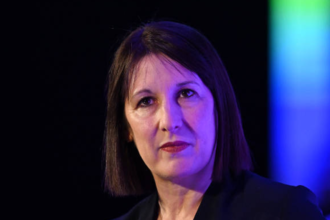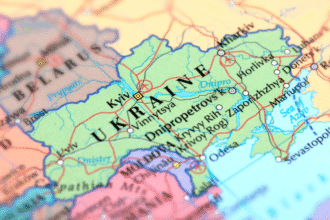UK Prime Minister Sir Keir Starmer underlined that any agreement to stop the violence between Russia and Ukraine will only be temporary unless strong security measures support it. He cautioned that Russian President Vladimir Putin would break any Ukraine Peace Deal, which lacked strong support.
Speaking at the Permanent Joint Headquarters in Northwood, London, Starmer addressed a conference of military chiefs from more than 20 countries. Conversations centred on sending soldiers to Ukraine to safeguard the nation as part of any eventual Ukraine Peace Deal. The conference underlined how urgently Ukraine’s defences against any possible breach of a peace agreement must be strengthened.
“It is vital we do that work since we know one thing for certain, which is a deal without anything behind it is something Putin will violate,” Starmer said. “We are aware that it occurred before. I am quite clear in my head: it will recur.”
Historical records show Russia has ignored diplomatic commitments without a solid security system. This emphasizes the need for strong deterrence to protect Ukraine from future aggression. The security strategy calls for military help from several countries, transforming the treaty from a mere piece of paper devoid of any actual enforcement.
How Are One Getting Ready for Military Service?
Before any Ukraine Peace Deal was reached, Starmer underlined that the UK and her allies were moving from “political momentum” to “military planning,” a vital step to take.
The UK Defence Secretary John Healey also participated in the closed-door conference, which included military commanders from countries building what Starmer described as the “coalition of the will.” The conference sought to apply “granular planning” to specify possible locations precisely. Every nation talked about prospective contributions to a security force, so guaranteeing Ukraine’s sovereignty would be safeguarded and acting as a deterrence against Russian aggression would be facilitated.
Officials underlined that any force deployment should be defined as a “reassurance force” instead of a “peacekeeping force,” guaranteeing clarity in their objective. This force’s job would be to keep things stable, track agreement conditions’ compliance, and discourage any potential agreement breach by Russia.
Will the UK pull troops from another commitment to support Ukraine?
One of the issues expressed about the deployment of the UK military was whether it would compromise current obligations in other areas. Declaring “there’s no pulling back from our commitments to other countries,” Starmer ruled out the redeployment of UK forces from current obligations, notably those in Estonia. His comment confirmed the UK’s commitment to its more general military responsibilities and backed Ukraine simultaneously.
The UK is thus looking at methods to help Ukraine’s security without sacrificing its obligations elsewhere. Ensuring a fair distribution of military assets is projected to depend mainly on NATO and other allies, preventing any one country from being overwhelmed by the obligations of the Ukraine Peace Deal.
Which military capability is under consideration?
During his visit to the Port of Barrow in Cumbria, where the UK’s nuclear submarines are built, Starmer said talks in London centred on safeguarding Ukraine’s borders, seas, and skies. This points to a complex strategy covering ground troops as well.
Sources state that one idea was sending British Typhoon planes to Ukraine to cover ground forces from the air. This will significantly strengthen Ukraine’s capacity to underline its control over critical areas and defend itself against aerial attacks. Such action would call for cooperation with other NATO members to guarantee appropriate integration of Ukraine’s air defence system with allied backing.
Armed Forces Minister Luke Pollard stated that since planning was still forming the force’s composition, debates had not yet reached the level of deciding the number of UK troops to be sent.
“How will the other countries cooperate if one nation provides quick jet combat air, akin to a Typhoon aircraft, for example? Where is it going to refuel? How would it function considering the capacity of other countries?” Pollard clarified, stressing the difficulties in military coordination.
Beyond air support, talks also covered giving Ukraine modern missile defence systems and intelligence-sharing channels. The objective is to build a thorough security system, including land, air, and marine capabilities, to stop any opening Russia could find helpful.
What New Diplomatic Efforts for a Ceasefire Exist?
On a visit to Norway, Ukrainian President Volodymyr Zelensky urged Russia to stop imposing “unnecessary demands that only prolong the war.” His comments expressed annoyance at the lack of development in negotiations as well as the ongoing military pressure Russian troops are applying on Ukraine.
Efforts to arrange a truce continue. Recent phone exchanges between US President Donald Trump, Putin, and Zelensky have not yet yielded the 30-day truce first suggested by the White House. The lack of agreement has caused delays in putting any significant stop to hostilities into effect.
Zelensky also stated that Ukrainian officials would meet with their counterparts in Saudi Arabia next Monday in line with separate negotiations between the US and Russia. After over three years of conflict, the most recent conversations show a continuous US endeavour to arbitrate a truce between the two countries.
The conference in Saudi Arabia is a vital chance to close the distance between Russia’s and Ukraine’s opposing needs. Although both Zelensky and Putin have theoretically consented to a ceasefire during US negotiations, unresolved issues stated by each side have prevented any deal from materializing. Russia requires some security assurances before pledging a truce, while Ukraine insists that Russia remove its troops from seized areas.
The Prospect of the Ukraine Peace Deal?
Military and strategic preparations abound in expectation of a future peace agreement, notwithstanding the continuous diplomatic negotiations. The UK and its partners are still dedicated to guaranteeing that any peace agreement for Ukraine is accepted and implemented successfully.
Discussions on precisely defined penalties for every agreement breach are in progress as part of this initiative. Working on developing policies that would quickly react to any Russian breach, the coalition of allies guarantees that should Putin try to breach the agreement, “severe consequences”. These repercussions can call for military reactions, financial penalties, or other kind of deterrent.
Further conferences with world leaders are scheduled to complete the security framework supporting the peace pact in the following weeks. Looking to build a long-term presence in the area, the UK and other countries guarantee that Ukraine’s security stays intact long beyond the agreement’s original signature.
With Ukraine’s sovereignty and stability precariously under flux, the world observes while military preparations and negotiations occur. The effectiveness of the Ukraine Peace Deal rests on the actual actions taken to implement and maintain its conditions as much as on diplomatic talks. Whether Putin upholds the agreement or not, the world seems resolved to ensure Ukraine never finds herself once again defenceless.








